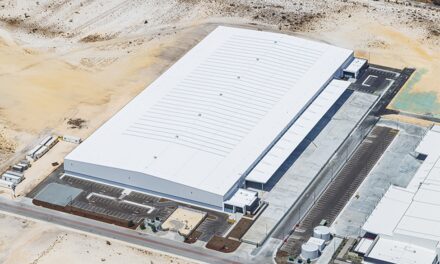
Australia Post ends “toughest year” with profit
Australia Post has declared a pre-tax profit of AUS$103m for the 2009/10 financial period, despite difficult economic conditions. The postal corporation’s underlying pre-tax profit was AUS$253m, but this figure includes a AUS$150m provision for business restructuring and voluntary redundancy costs.
A net profit of AUS$89.5m was reported, whilst the company delivered a total of 5.14bn pieces of mail for the period.
Australia Post chairman, David Mortimer, said that the corporation had been heavily impacted by the global shift towards digital communications.
He said that electronic substitution is now affecting mail volumes worldwide and that Australia Post had implemented a number of measures during 2010 to prepare the business for ongoing challenges in its traditional core markets.
Mortimer said: “Against a backdrop of a 4.2% decline in mail volumes and in the face of rising costs, the 2009/10 year was the toughest in Australia Post’s history.
“At the start of this year, the Board identified three key priorities that would help stabilise the business and encourage growth: establishing harmonious industrial relations; tackling costs by reducing overheads; and securing a letter price increase.
“We managed to achieve all of these objectives by the end of the financial year, and there are clear signs that our financial performance is now improving.
“In April, Ahmed announced the corporation’s Future Ready business renewal program, which involves transforming Australia Post into a more customer-focussed, high-performing and financially sustainable business.”
CEO Ahmed Fahour, who took over the role from Graeme John in February, said whilst last year was a difficult period for the business, he is pleased with its recent trading performance and is upbeat about Australia Post’s near term prospects.
He said: “Despite experiencing the worst mail volume decline in our history and absorbing rising costs due to inflation, our net cash was AUS$500.7m, consistent with last year’s figure. This preserved cash balance means we’ve maintained the strength in our balance sheet.
“The Board set a clear goal of stabilising the business, including completing a Fair Work Agreement and addressing costs while identifying new areas of revenue growth.
“The first part of this was to establish the Future Ready business renewal program, which comprises four strategic business units: Postal Services, Retail Services, Distribution & Express Services and eServices.
“We’ve set about laying the foundation for the future by expanding our capabilities in eServices, distribution and logistics, and leveraging our retail network as a shopfront for government and financial agencies.
“The growth in online shopping is going to be a key piece in our recovery strategy, as we leverage the spin-off effects in our parcels market.
“We’ve worked hard to prune costs at the very top levels of the business – at headquarters and state head offices – and we have made provisions for voluntary redundancies in the face of continuing mail volume declines.
“It’s clear that the services Australians need from us have changed, so whilst we continue to be a trusted provider of mail delivery, letters will no longer be the backbone of the business.”
Fahour said Australia Post is now pursuing opportunities in the digital arena, such as the launch of an iPhone app and the trial of a digital mailbox that delivers letters electronically to a secure web interface.
“We’ve taken advantage of preliminary opportunities in the digital field that give us a testing ground to determine how we can introduce bigger and better ideas.”
Some key results from the 2009/10 Annual Report include: a net profit of AUS$89.5m despite significant market challenges; delivering 96.1% of domestic letters on time or early; handling 5.14bn items of mail and delivering to over 10.7m Australian addresses; processing more than AUS$77bn in payments through Australia Post’s suite of financial and agency services; total dividend payments of AUS$79.1m to our shareholder, the Federal Government; conducting 1.5m Australian passport interviews, and becoming the first external entity permitted to process British passports; servicing around 240m customer visits every year in 4,415 retail outlets Australia-wide; and a strong performance in the parcels and logistics portfolio with 16.8% volume growth for the eParcel service.











